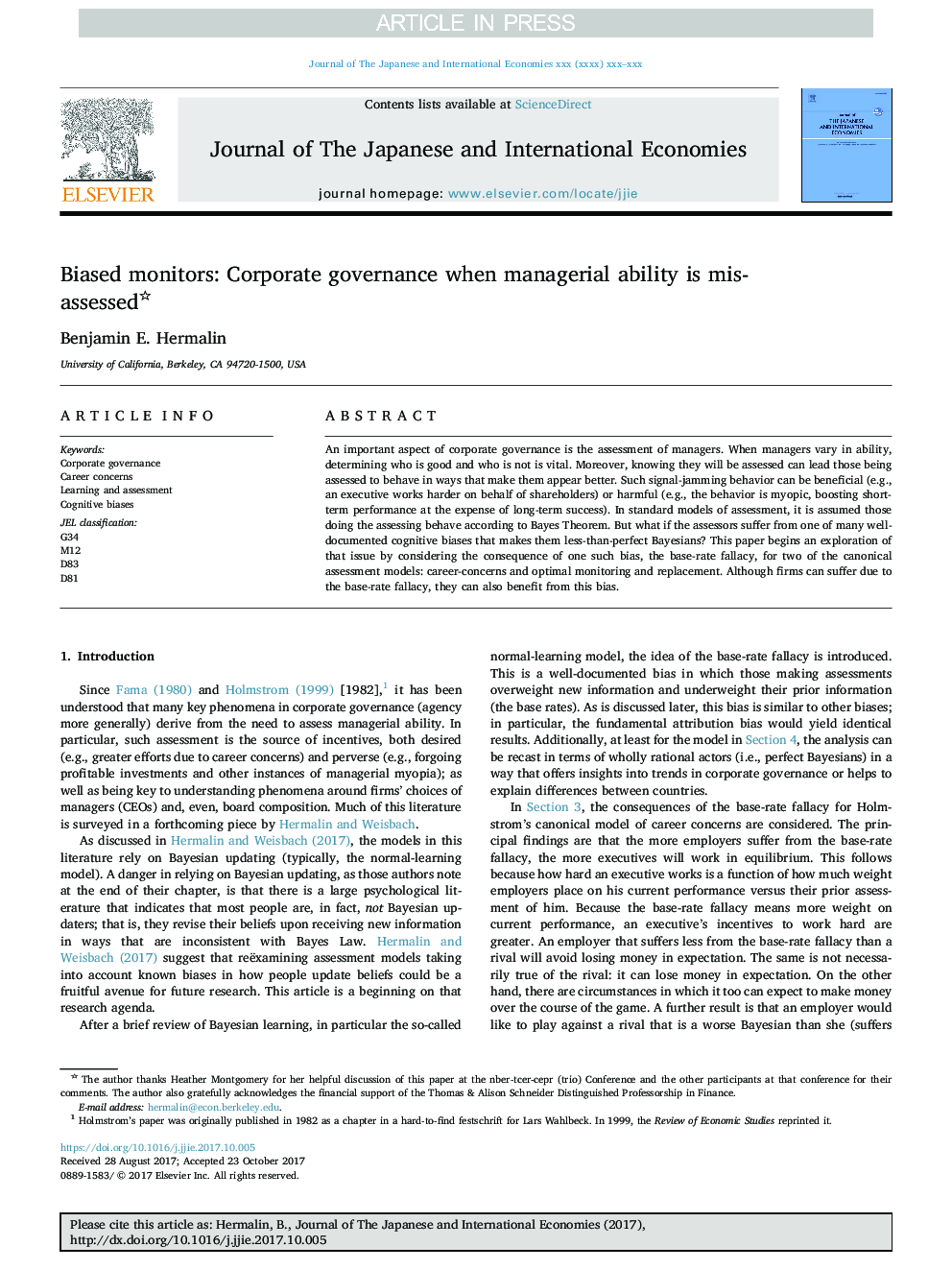| Article ID | Journal | Published Year | Pages | File Type |
|---|---|---|---|---|
| 7366303 | Journal of the Japanese and International Economies | 2018 | 11 Pages |
Abstract
An important aspect of corporate governance is the assessment of managers. When managers vary in ability, determining who is good and who is not is vital. Moreover, knowing they will be assessed can lead those being assessed to behave in ways that make them appear better. Such signal-jamming behavior can be beneficial (e.g., an executive works harder on behalf of shareholders) or harmful (e.g., the behavior is myopic, boosting short-term performance at the expense of long-term success). In standard models of assessment, it is assumed those doing the assessing behave according to Bayes Theorem. But what if the assessors suffer from one of many well-documented cognitive biases that makes them less-than-perfect Bayesians? This paper begins an exploration of that issue by considering the consequence of one such bias, the base-rate fallacy, for two of the canonical assessment models: career-concerns and optimal monitoring and replacement. Although firms can suffer due to the base-rate fallacy, they can also benefit from this bias.
Related Topics
Social Sciences and Humanities
Economics, Econometrics and Finance
Economics and Econometrics
Authors
Benjamin E. Hermalin,
